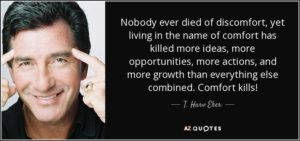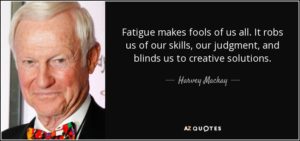
How to manage fatigue – The most valuable Tips from industry experts

Manage fatigue most efficiently in the workplace. Fatigue is common for all who work towards perfection in the career. Manage fatigue to gain an advantage over your productivity loss.
“Fatigue makes fools of us. It robs us of our skills, our judgement, and blinds us to creative solutions.”
– Harvey Mackay
Every person is different, and fatigue affects them differently. So the best way to handle fatigue will vary from person to person. Knowing how the fatigue impacts your work life can help you to comprehend how best to manage the fatigue. However, it is a process that will take a lot of time and a lot of patience. Here are a few things that can be useful to think about when understanding your fatigue; they are:

How to manage fatigue?
- Are there any patterns to your fatigue, e.g. the fatigue appears to get worse after doing a specific activity.
- Is there any particular time that your fatigue is worse than others? E.g. 3 pm.
- Does any taking rest at any period relieve symptoms of fatigue? E.g. An hour rests mid-morning.
- What are your limits when carrying out any office activity?
Once you get more aware of your fatigue, what can trigger episodes and what helps, you can think about how best you can add plans and activities into your daily life
“Hard work never brings FATIGUE, it brings satisfaction.”
– Narendra Modi

How to manage fatigue wisely?
- Keep a diary
Keeping a fatigue diary will be an effective way to understand your fatigue.
To make the most of your diary
- Document all the activities you do daily at the office
- Rate the fatigue levels for each activity you do, e.g. one = minimal levels of fatigue and 10 = very high levels of fatigue
- Add in any extra information regarding your day. More information is better to help identify any patterns to your fatigue levels.
- Making plans and prioritising them.
It can be frustrating when your exhaustion makes it difficult for you to do those things you want to do. So, it will be helpful if you concentrate on the most critical thing you should do daily and do them according to the priority. Your fatigue diary will help you when you are scheduling plans for your week.
- When you have important things to do, it is better to think about when you are most likely to feel at your best. Plan your activities around this time.
- Ensure you also schedule in rest periods around these activities. If you know a specific task is going to leave you feeling more fatigued, then you can schedule longer rest periods around the task.
- Be realistic about what all things you can do. If you plan too much and are unable to complete the activities, it will leave you feeling more frustrated and disappointed.
- If it is possible to break your task into more manageable chunks, then do it.
- Keeping active and sleep well
It can be challenging to consider exercising when you feel fatigued, but it is crucial to maintain your activity levels and exercise is very helpful for fatigue. However, consulting your healthcare professional before doing this will be the best.
- Plan your exercise into your schedule for the day.
- Set easy and attainable goals for you. Think about your own capabilities and what you can manage. The exercise doesn’t need to be so intense or complicated. It can be as straightforward as walking till the end of your driveway and back each day.
- Try to increase the physical activity you do a little bit at a time.
- Make sure to plan enough rest periods and do just enough exercise so that you are not overdoing it and leave feeling very fatigued.
Trying to keep a healthy sleep routine and avoiding sleeping for long periods throughout the day is very important.
“Our fatigue is often caused not by work, but by worry, frustration and resentment.
– Dale Carnegie





